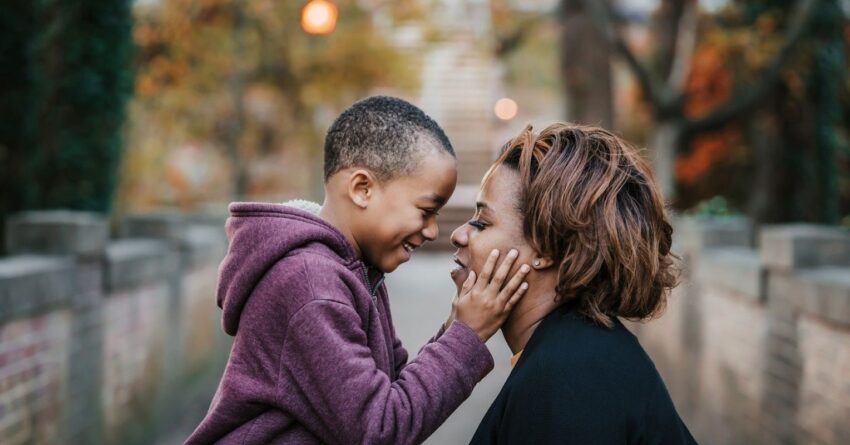
Source: Anastasiya Babienko/ Pixabay
Have you ever experienced a down day, where your heart is sad? Well, today we’re going to explore something that research shows you can do to feel better.
One of the toughest experiences is when we’re just not feeling emotionally fit, and we don’t know what to do. How do we get out of this rut?
To break that rut, we’re going to do different things. Today, we’re going to become happiness explorers. Many of us have what we call a “to-do” list. The problem with that “to-do” list is that it can be long, and it seems like it never goes away. Even if we complete things on the list, new things crop up quickly. So, then we end up just doing our normal routine repeatedly.
The other rut we get stuck in is staying home and doing things we always do, whether it’s watching television, sitting around, or just being on our phones for hours. It’s amazing how easy it is to do repetitive things and not even notice that we haven’t done anything all day long.
I practice diversity in life
And yes, I like to read and study, but I also like to get out and do things. So, every day, I explore my surroundings. Sometimes, I travel. I just got back from a two-week trip to Iceland, and it was a beautiful experience. I believe we should explore because we live in such a beautiful world. As for me, I don’t have to work towards this lifestyle. It just comes naturally to me.
Of course, there are times when I feel like resting, but normally I just want to get out and see new things. Life feels like such a gift to me.
Studies that prove this is true
So, you can probably imagine my jubilation when I came across a study from May of 2020, that talks about how new and diverse experiences are linked to enhanced happiness. This study was reported in Nature Neural Science.
The crux of the study was to determine if people were happier when they had more variety in their daily lives. Here’s how the study was conducted.
Participants in New York and Miami, for 3-4 months, texted how they were feeling every day. And they had GPS trackers on them, so they knew they were either at home or out doing something. What they found was that people who had more variety in their physical location throughout the day, in other words, they were going to different places and not just staying home, they felt proportionately happier. They reported feelings of happiness, strength, relaxation, and attentiveness.
The researchers decided to take it one step further. About half of the subjects returned to the laboratory and underwent MRI scans. What they found here is that people reporting the most positive effects of creating diversity in their lives also exhibited a greater amount of activity in the hippocampus and the striatum. These areas of the brain are responsible for processing novelty and reward and are beneficial for positive experiences.
In other words, having diversity in our lives is physically good for us. It creates a sense of well-being and happiness throughout the day. If we just pause for a moment and wonder, “Is this true?”
When a person is confined to their home, whether it’s due to illness or some kind of legal action, I don’t believe they are happy. Sure, it may temporarily seem rewarding, but in the long run, it can lead to depression. It can be addictive to stay home and do the same thing all day long. Getting out there and doing things just equals a better life. Isn’t it pleasant that we now have studies supporting this?
So, how can we implement this change in our life?
In working with many people who struggled with depression, one of the major hurdles was changing their routine. They didn’t understand that this monotony was feeding their depression. But getting out there and doing new things required energy, and many people who were used to staying at home just didn’t have this energy. It was challenging.
It’s a Catch-22. If they do it, they will feel better, but they just don’t feel like doing it, so they feel worse. They are stuck. It’s a habit that causes us to suffer. If we’re going to change and get out of our routine, it may initially feel uncomfortable. But once you’ve pushed past this, you feel so much better.
Depression Essential Reads
Here’s an example.
I get up at 4:30 a.m., and I go to the gym. I lift weights, I swim, and I do yoga. And even though it’s early when I get there, everyone seems to be in a good mood. They’re not dragging themselves there in exhaustion and feeling depressed. They’re enjoying themselves and working out. It’s the same way if you go to a museum, a beach, or a park, whatever it may be, you will rarely find a miserable person.
The study says they are happy because they went out and had a more diverse day.
We must leave our comfort zones
We need to commit to doing things that initially may make us feel uncomfortable. I don’t mind going to the gym now. But there were times in the past when I had to train myself to go. We can get used to doing things.
We can start with weekends, maybe spending Saturdays and Sundays doing something different. If we’re tired, we can find activities, groups we can join, or classes we can take.
We must train ourselves to get moving. Creating diversity is good for us. It’s good for our brains. As a clinical psychologist, I do understand how routine can be addictive. We get stuck in our routines, even if the routines make us feel worse.
Why would we do something that’s hurting us? It’s because we are creatures of habit. And we try to numb ourselves by eating too much, drinking, or drug use. We can even fall victim to mindless electronic usage.
You can change your path
Planning helps. Even though we may back out, we can try again the next day. You can even plan vacations, which require more serious planning like making reservations. It’s harder to back out of plans that may be paid for already.
And usually, when people go on vacation, they have a wonderful time. Setting alarms and reminders also helps us get out and do things.
If you just start doing diverse things more often, you will notice that depression dissipates. That sadness in your heart will drift away, replaced by joy, joviality, and happiness.
Slowly but surely, your brain will begin to change, you become more active, and your moods will improve. Overall, life will be worth living.
